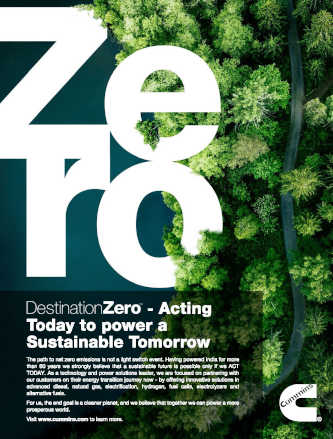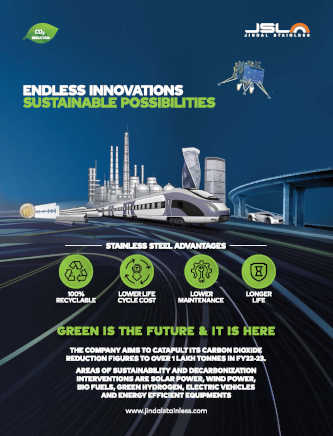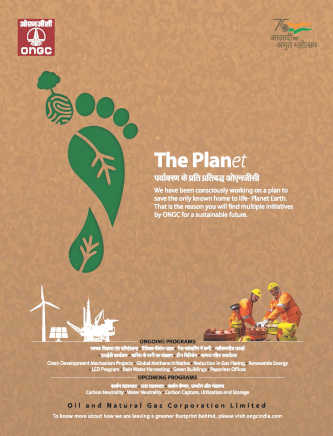
Over the course of this decade, India is going to be doubling virtually every sector in the country – from construction to transport to manufacturing. There is a very real risk we will end up doubling emissions. Now, while our per capita emissions are much lower than the world’s highest historical emitters (the US, China & Europe), our poor, our food systems and our health infrastructure will be unable to withstand the worst of the climate shocks. Two levers could serve to break this handcuff of emissions and economic development – and they both need to kick in. One is a fundamentally different consumption model that builds on Indian values of frugality, but layers it with the engineering and economics of the circular economy. The second is climate technology, and the potential it presents to transform or create whole sectors (like the business potential from waste management), leapfrog traditional business (such as the opportunity to build green steel, cement and manufacturing capacity that India needs) or drive efficiency (as exemplified in reducing India’s freight and logistics costs form the current ~14 per cent of GDP to ~8 per cent, which is closer to more industrialised countries through multiple avenues including logistics optimisation software). Can India drive climate tech? Fintech established that India has the entrepreneurial talent, the investment and incubation support as well as the enabling policy environment and demand. Climate tech clearly holds potential, but we are some ways from it coming anywhere near as established as fintech. What will it take to catalyse the Indian climate tech ecosystem? At the root is – the demand and supply for innovation are not aligned in India. Corporate India is looking for solutions and innovations in one set of areas and academic and research India is looking elsewhere. We see five major things that need to happen. We need to support innovators and entrepreneurs in the five sectors that contribute to the lion’s share of emissions but receive a fraction of the investment – agriculture & food systems, cement & construction, freight & logistics, manufacturing (including steel as well as waste management). The climate tech movement must go mainstream. Start-ups and angel investors are critical, but we also need corporates and generalist investors in the room. Quite frankly, it is corporates and general investors who have the wherewithal (financial and otherwise) to be able to make the requisite investments. India – and especially corporate India – needs to spend more on R&D. India currently spends one-third the levels of industrialised countries (0.65 per cent compared to 1.5 per cent of GDP). Also, the private sector in India spends 40 per cent of this, while it is 70 per cent of it in these countries. Both need to shift and dramatically so. Now, it might be that India needs to do fundamental research across the board, but India is going to be uniquely positioned to drive the cost and scale imperatives that are needed here. For instance, lower cost carbon capture and storage is far more likely to happen in India than elsewhere because there are no large subsidies that are likely in other geographies.
























